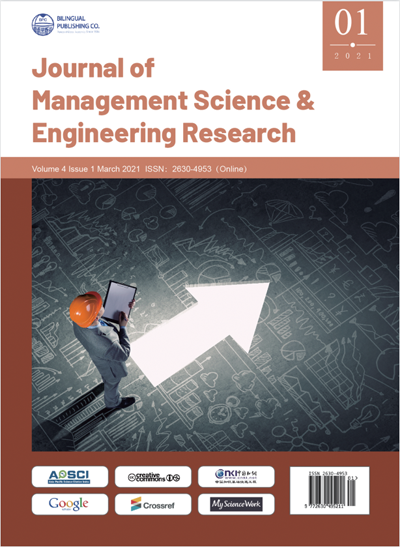-
5151
-
902
-
427
-
360
-
325
Evaluating Bullying Effect on the Happiness and Performance of the Ship’s Crew
DOI:
https://doi.org/10.30564/jmser.v4i1.2753Abstract
Bullying is rampant and has severe effects on the health and wellbeing of the employees. Additionally, it also undermines job satisfaction and performance, thus affecting productivity. Bullying among seafarers is widespread, and their isolation from the rest of the people while at sea can enhance aggressive behaviour. Bullying is widespread among seafarers and severely affects them in core areas of their life. There is a significant effect of bullying on mental health. However, the Omani seafarers are loyal to their jobs and claim to be happy at sea despite the challenges and hardships. While there are different forms of bullying in the workplace, verbal abuse is the most rampant. The study seeks to highlight the impact of bullying on seafarers' happiness and job satisfaction who work in a shipping company. A questionnaire with nine questions was prepared based on the authors' experience and sent by mobile phone to fifty officers and crew members working onboard. More insight into workplace bullying among seafarers is essential in formulating adequate law, thus improving seafarers' health and safety.Keywords:
Bullying; Job satisfaction; Life at sea; Conducts; Mariners well beingReferences
[1] Forsell, K., Eriksson, H., Järvholm, B., Lundh, M.,Andersson, E. and Nilsson, R. (2016). Work environment and safety climate in the Swedish merchant fleet. International Archives of Occupational and Environmental Health, 90(2), pp.161-168.
[2] Einarsen, S., Hoel, H. and Cooper, C. (2002). Bullying and Emotional Abuse in the Workplace.
[3] Sardar, A and Sardar, H 2017, 'Effect of bullying on mental health of mariners', in Proceedings of the 18th Annual General Assembly of the International Association of Maritime Universities (Global Perspectives in MET: Towards Sustainable, Green and Integrated Maritime Transport), Nikola Vaptsarov Naval Academy, Bulgaria, pp. 421-425.
[4] Nielsen, M. (2012). Bullying in work groups: The impact of leadership. Scandinavian Journal of Psychology, 54(2), pp.127-136.
[5] Mayhew, C., McCarthy, P., Chappell, D., Quinlan, M., Barker, M. and Sheehan, M. (2004). Measuring the Extent of Impact from Occupational Violence and Bullying on Traumatised Workers. Employee Responsibilities and Rights Journal, 16(3), pp.117-134.
[6] Bloisi, W. and Hoel, H. (2008). Abusive work practices and bullying among chefs: A review of the literature. International Journal of Hospitality Management, 27(4), pp.649-656.
[7] Carotenuto, A., Fasanaro, A., Molino, I., Sibilio, F., Saturnino, A., Traini, E. and Amenta, F. (2013). The Psychological General Well-Being Index (PGWBI) for assessing stress of seafarers on board merchant ships. International Maritime Health, 64(4), pp.215-220.
[8] Grossi, Enzo & Compare, Angelo. (2012). Psychological General Wellbeing Index.
[9] Kivimaki, M. (2019). Workplace bullying and the risk of cardiovascular disease and depression.
[10] K. R. Parkes, S. Carnell, and E. Farmer, Musculoskeletal Disorders, Mental Health and the Work Environment, HSE, Sudbury, Canada, 2005.
[11] Quine, L. (1999). Workplace bullying in NHS community trust: staff questionnaire survey. BMJ, 318(7178), pp.228-232.
[12] Sá, L. and Fleming, M. (2008). Bullying, Burnout, and Mental Health Amongst Portuguese Nurses. Issues in Mental Health Nursing, 29(4), pp.411-426.
[13] Charbonneau A. (2017) Violence and Bullying in Maritime Transport: The Contribution of the Maritime Labour Convention of 2006. In: Lerouge L. (eds) Psychosocial Risks in Labour and Social Security Law. Aligning Perspectives on Health, Safety and Well-Being. Springer, Cham.
[14] Theotokas, I. and Tsalichi, C. (2013). Employment of women at sea. Perceptions, attitudes, and experiences of male seafarers in the Greek context. Proceedings of the IAME 2013 Conference.
[15] Dickinson, M. (2013). Protect and respect. Guideline pack. p10.




 Imad Mubarak Said AlBreiki
Imad Mubarak Said AlBreiki





